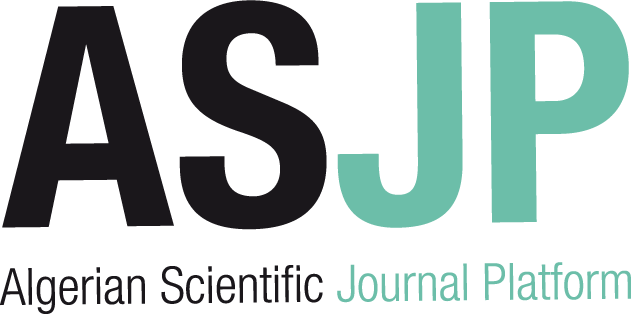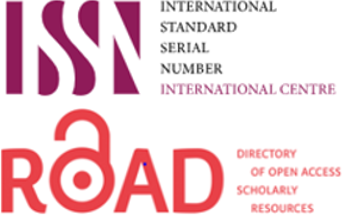Announcements
Call for Papers for a Special Issue
The Transformations of the Sacred in the Digital Age: Practices, Beliefs, and Religious Identities in Transition
Abstract
The Anthropology of Religions journal announces a call for contributions for a special issue dedicated to the transformations of the sacred in the digital age, and the reconfiguration of the relationship between humanity and religion in the context of rapid technological development.
This issue aims to explore new forms of expression of religious practices, beliefs, and spiritual experiences in virtual spaces, through anthropological, sociological, semiotic, and communicational approaches.
It also seeks to understand the impact of the digital revolution on the symbolic structure of the sacred, and on the modes of expressing faith and spiritual belonging in a connected world, between historical continuity and cognitive rupture.
Special Issue Coordination Committee
Pr. Mohamed Moussaoui (University of Tlemcen, Algeria)
Pr. Naima Rahmani (University of Tlemcen, Algeria)
Pr. Khaled El Joundi (Lebanese University – Branch III – Tripoli, Lebanon)
Issue Rationale
Since ancient times, the sacred has been linked to symbols, rituals, words, and places that embody the relationship between humans and the transcendent world. However, the digital revolution has introduced this relationship into new spaces, where religion migrates to virtual worlds, digital platforms, and social networks.
The digital space has become an alternative field for performing rituals, spreading beliefs, building spiritual communities, and circulating religious discourse. This dynamic has generated new forms of digital spirituality and virtual rituals.
This transformation raises fundamental questions about the meaning of the sacred, the presence of the invisible in a programmed world, the authority of religious references in an open space, and the place of humans as believers or seekers of spiritual experiences in a technological universe.
Contemporary anthropological studies address these phenomena as profound mutations in the human relationship with the sacred, opening new perspectives for understanding religion in the era of digital globalization. This special issue of the Anthropology of Religions journal aligns with this dynamic by offering critical and field-based studies shedding light on the multiple faces of the sacred in the digital age.
Proposed Themes
Religion in the Digital Space – Practices, Rituals, and New Media
How has digital technology reshaped religious practice? What are the characteristics of virtual rituals and modes of online devotion?
Belief and Religious Identity in the Connected World
How are religious identities reformulated in the era of social networks? What is the place of the sacred in the culture of the image and the screen?
Authority and Religious Memory in the Digital Age
Who holds legitimacy in representing religious discourse in digital media? How is religious memory constructed and transmitted in open digital environments?
Anthropology of New Spiritualities
How does digital technology generate new forms of faith and spiritual experience? What are the symbolic and ethical dimensions of the “virtual sacred”?
Timeline and Submission Guidelines
05/30/2026: Date limit for receipt of receipts (maximum 3000 cards, spaces included), complete room accompaniment, institution affiliation and electronic address to: laboanthropol@gmail.com
06/15/2026: Notification of scientific decision making
09/30/2026: Date limit for the publication of articles via the ASJP plate: https://asjp.cerist.dz/en/PresentationRevue/559
The special number of the review *Anthropology of Religions* will be published in Volume 22, Number 03, this 12/15/2026.
For more information on the publication’s plans and audio formats, please consult the page of the review on the University of Tlemcen website
or the review page on the ASJP website.
Editorial and Committees
Editor-in-Chief:
Pr. Naima Rahmani (University of Tlemcen, Algeria)
President of the Scientific Committee:
Dr. Moussouni Abdelatif (National Center for Prehistoric, Anthropological and Historical Studies and Research, Tlemcen, Algeria)
Members of the Scientific Committee:
In Arabic: Khaled El Joundi (Lebanese University – Branch III – Tripoli, Lebanon); Naaman Saleh (King Khalid University, Abha, Saudi Arabia); Doaa Ali (University of Hail, Iraq); Dkhane Abdelaziz (University of Sharjah, UAE); Naaman Bouguera (Umm Al-Qura University, Saudi Arabia); Hachem El Hammami (Arab Open University, Jordan); Lazhar Mejri (Faculty of Letters, Arts and Humanities, La Manouba, Tunisia); Mohamed Eddah Abdelkader (University of Nouakchott Al-Asriya, Mauritania); Sedraoui Tarek (University of Mahdia, Tunisia); Moustafa Lekhal (Dr Moulay Taher University of Saida, Algeria); Kaddour Wahrani (Abou Bekr Belkaid University, Tlemcen, Algeria); Mohamed Belalia (Abou Bekr Belkaid University, Tlemcen, Algeria); Dhehimi Zineb (Abou Bekr Belkaid University, Tlemcen, Algeria); Belbchir Mohamed (Abou Bekr Belkaid University, Tlemcen, Algeria); Hachlafi Lakhdar (Ziane Achour University, Djelfa, Algeria); Mouafek Zazoui (Abou Bekr Belkaid University, Tlemcen, Algeria); Ben Salah Bachir (Abou Bekr Belkaid University, Tlemcen, Algeria); Berkat Moustafa (Abou Bekr Belkaid University, Tlemcen, Algeria); Mansouri Mokhtar (Abou Bekr Belkaid University, Tlemcen, Algeria); Bouras Slimane (University of M’sila, Algeria); Hayet Dbeihi (Abou Bekr Belkaid University, Tlemcen, Algeria); Abdelkrim Tahir (Abou Bekr Belkaid University, Tlemcen, Algeria); Abdelkader Doudji (Hassiba Ben Bouali University, Chlef, Algeria); Omar Si Abdelkader (Abou Bekr Belkaid University, Tlemcen, Algeria); Chouaib Meqnounif (Abou Bekr Belkaid University, Tlemcen, Algeria); Abdelhaq Zeriouh (Abou Bekr Belkaid University, Tlemcen, Algeria); Rejati Noura (Emir Abdelkader University of Islamic Sciences, Constantine, Algeria).
In French: Saïd Belguidoum (Aix-Marseille University – Institute for the Study of the Arab and Muslim World – IREMAM – CNRS, France); Ludovic-Mohamed Zahed (Assistance Publique – Hôpitaux de Marseille, France); Amaria Belkaid (University of Tlemcen, Algeria); Abdelhafid Moussem (Dr Moulay Taher University of Saida, Algeria); Benamar Hamdadou (Oran 1 Ahmed Ben Bella University, Algeria); Abdelaziz Elkebar (Abou Bekr Belkaid University, Tlemcen, Algeria).
In English: Ashraf Salih (University of Ibn Rushd, Netherlands); Viktor Vus (National Academy of Educational Science of Ukraine); Youcef Nasser (International Islamic University Malaysia); Yasser Mohamed Abdel Rahman Tarshany (Al-Madinah International University, Malaysia); Mahmoud Khalf (Islamic University, Minnesota, USA); Essia Ries Ahmed (University Sains Malaysia); Shadi Shdaifat (University of Sharjah, UAE); Hamid Bourouba (National Center for Prehistoric and Historical Anthropological Studies and Research, Algeria); Ahcene Lahsasna (SIFA, Singapore); Mokdad Mohamad (University of Bahrain).
Editorial Committee: Amel Youcefi (University of Tlemcen, Algeria); Abdelkader Maaziz (University of El Bayadh, Algeria); Belkheir Othmane (University of Tlemcen, Algeria); Nour El Houda Yahiaoui (University of Tlemcen, Algeria); Soufiane Touhami (University of Saida, Algeria); Adel Sidi Yakhlef (University of Tlemcen, Algeria); Hasiba Alaouia (University of Tlemcen, Algeria); Hayet Sghir (University of Tlemcen, Algeria); Hassina Saadi (University of Tlemcen, Algeria); Zakya Laithim (National Center for Prehistoric, Anthropological and Historical Studies and Research, Tlemcen, Algeria); Saoud Hajal (University of Tlemcen, Algeria); Malika Hakem (University of Tlemcen, Algeria); Rajaa Bouzidi (University of Tlemcen, Algeria); Hamid Ait Habouche (Oran 1 Ahmed Ben Bella University, Algeria).
References:
*Abd al-Hadi, ‘Abd al-Rahman. (2000). The Throne of the Sacred: Religion in Culture and Culture in Religion. Beirut: Dar Al-Tali‘a – Lebanon.
*Ben Salah, Bachir & Zaoui,Mostapha. (2023). “Religiosity and the Digital Environment: An Anthropological Reading of Practices and Representations in Virtual Space.” Anthropology of Religions Journal, vol. 19, no. 2.
*Bouhella, Chahira. (2024). “Morphology of Digital Religious Discourse in Algeria: An Analytical Study of a Sample of Religious Pages on Facebook.” Insanah Journal for Research and Studies, vol. 14, no. 2.
*Twalbiya, Mohamed. (2019). “The Ideology of Digital Space: A Study of Foundational References.” Al-Academia for Social and Human Studies, vol. 11, no. 1.
*Rahamouni, Loubna. (2025). “Digital Space and the Reconfiguration of Concepts of Time and Meaning Perception: Philosophical and Social Implications on Human Identity and Communication.” Qabas Journal of Human and Social Studies, vol. 9, no. 1.








